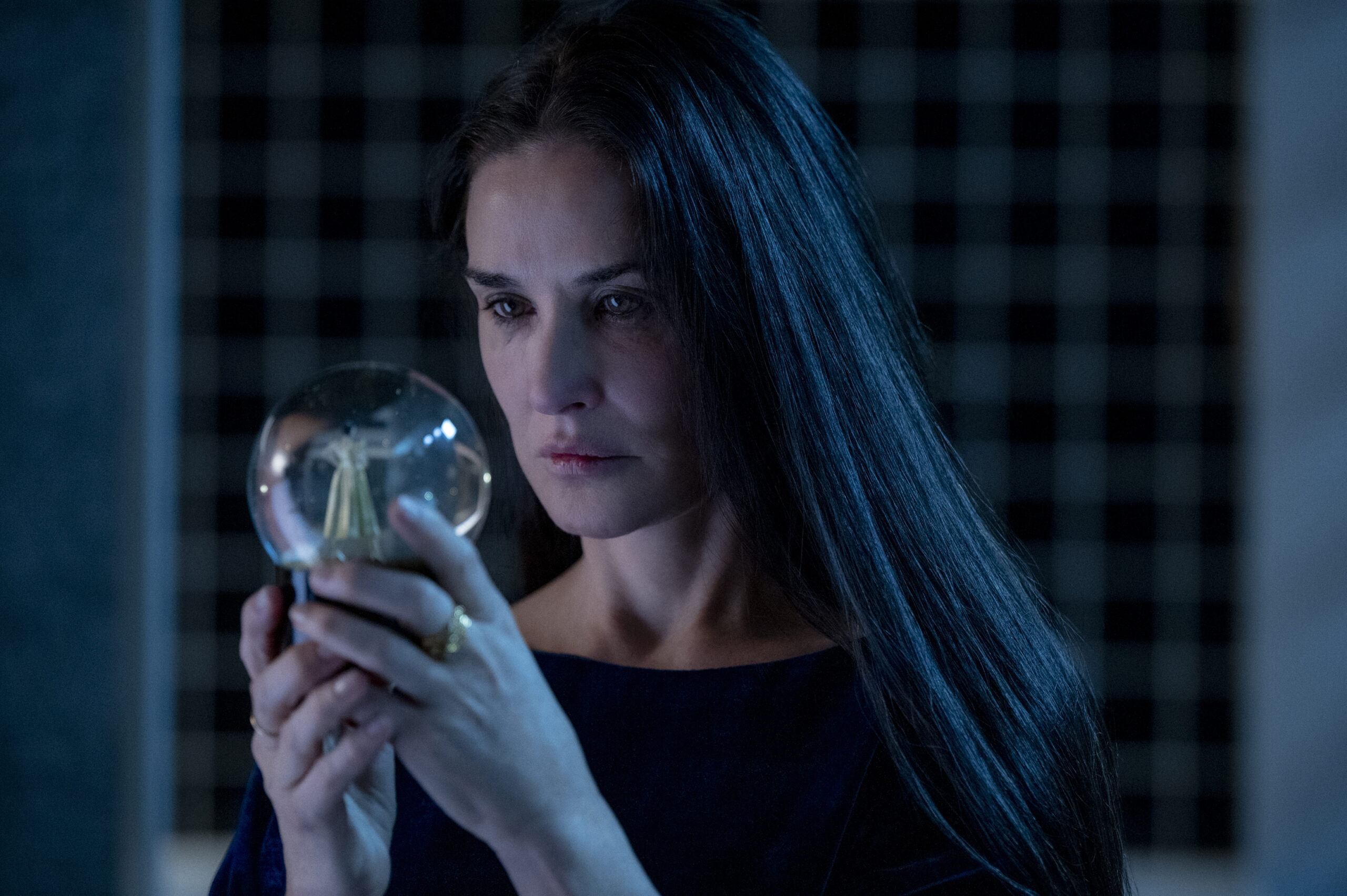
After premiering at the Cannes Film Festival earlier this summer, “The Substance,” directed by Coralie Fargeat, made its debut in theaters across the country on Friday, Sept. 18.
“Have you ever dreamt of a better version of yourself?”
This is the question that plagues Elisabeth Sparkle, played by Demi Moore. Elisabeth is a middle-aged actress who, despite once being venerated in the eyes of Hollywood, has become ancient history.
Elisabeth finds herself at a crossroads of professional expectation and personal dissatisfaction, relegated to performing in less-than-desirable workout videos under the watchful eye of her demanding and scuzzy boss, a character named Harvey, who is played by a go-for-broke Dennis Quaid.
After being fired from her agency, Elisabeth comes across a new black market drug that wields the promise of creating a prettier, younger and perfect version of herself. Complications ensue.
Moore, who was once the highest paid actress in the world, plays Elisabeth with the right metatextual alchemy of rage and longing, the emotional pillars on which Fargeat builds her daring and provocative body horror thrill ride.
The younger version of Elisabeth is portrayed by Margaret Qualley with an unflinching level of commitment, thunderously coming to life via a stomach-churning visual gag I would not dare spoil. These maximalist, gross-out elements are merely the tip of the iceberg in a film that confidently proves it has absolutely no line it is unwilling to cross, mostly for the better.
The films of David Cronenberg and Andrzej Żuławski are obvious influences, with a dash of “Vertigo” and “The Shining” in pleasurable measure. Yet “The Substance” operates on a register completely unique unto itself. Think “Freaky Friday” in its body-swapping mayhem, only with an extra emphasis on the freaky.
The ozempic-coded narrative could not be any less subtle, capturing its absurdist Los Angeles environment as a vapid and poisonous funhouse mirror to reality. Every technical element, from the eye-popping cinematography to the gnarly sound design is aiding and abetting in incriminating viewers in the harsh, cyclical mechanisms of modern pop-consumerism and the commodification of female beauty.
Yet one cannot help but feel that the lack of subtlety — most acutely and hilariously realized in the film’s depiction of an “Entertainment Tonight”-style show simply titled “The Show” — is all by design. Fargeat may be shooting fish in a barrel, but it does not matter when she is such a good shot.
There’s a consistent clarity to Fargeat’s vision — a vision that is rooted in a very broad, satirical palimpsest, but remains tonally precise and emotionally specific, making its two-hour-and-20 minute runtime fly by. I could not help but be taken by “The Substance,” and I would certainly return for another dose.
“The Substance” is now playing in theaters nationwide.































